News
CEHD Cambodia delegation includes ICD faculty member and CDLS director
This January, the College of Education and Human Development (CEHD) sent a delegation to Cambodia to meet with community members, faculty, and educators. ICD representatives were Assistant Professor Ka I Ip and Child Development Laboratory School Director Sheila Williams Ridge. They share their reflections about the trip here:
Sheila Williams Ridge
As ICD delegates, we had the honor of visiting Cambodia in January 2024. During our time in Cambodia, we had the privilege of visiting various education programs in Phnom Penh and Siem Reap. These visits provided us with a deeper insight into the diverse backgrounds and skills of educators in Cambodia, including individuals who were deported from the US, university faculty, those with limited formal education, and others with extensive academic backgrounds. We witnessed firsthand the profound impact these dedicated individuals have on the lives of Cambodian community members, spanning across children, adults, and families.
Accompanied by CEHD faculty members, our journey allowed us to engage in mutual learning through shared experiences, fostering immediate reflection and deeper understanding. Throughout our visits, the concept of scaffolding emerged as a recurring theme, emphasized by several programs. Additionally, we encountered discussions on self-care and the healing power of nature during some of our visits. While I have incorporated aspects of these teachings in my courses, witnessing their impact on educators in the Teach for Cambodia program underscored the importance of intentionally integrating them into all my educational programs.
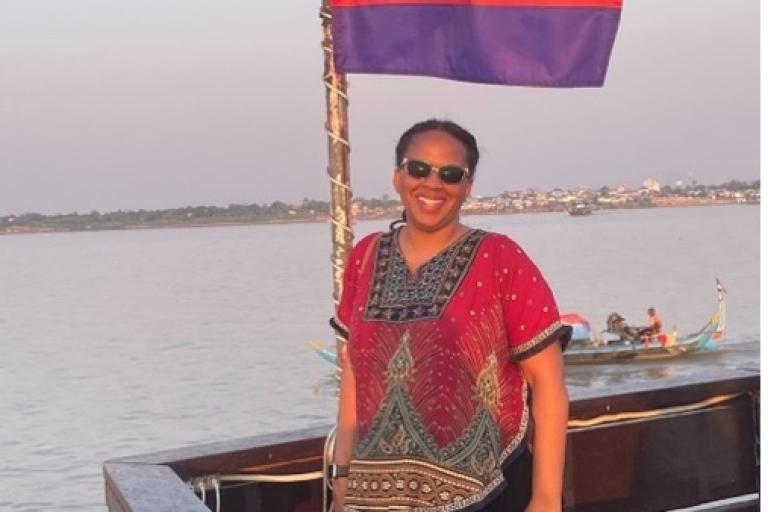
CDLS Director Sheila Williams Ridge on a sunset boat tour along the river in Phnom Penh

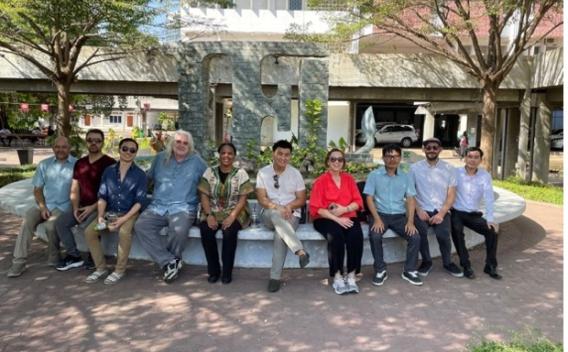
Visiting Royal University of Phenom Penh

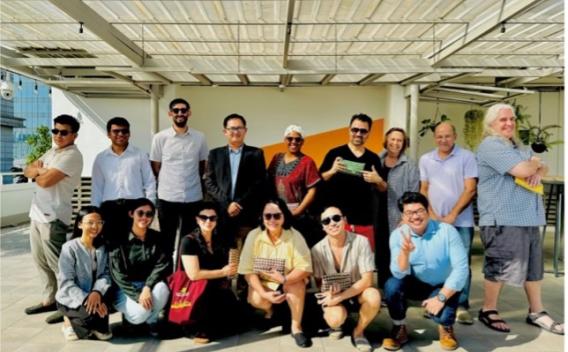
Meeting with the founder and staff of Teach for Cambodia

Ka I Ip
As a Cambodian Chinese whose family fled the genocidal Khmer Rouge regime and civil war, I've had limited exposure to my cultural heritage due to my family's reluctance to discuss our traumatic past. However, I feel honored and privileged to be chosen as the ICD faculty delegate to visit Cambodia for the first time. This journey has allowed me to reconnect with my heritage and has prompted deep reflections on my role as a scholar studying mental health, adversity, and resilience from a multi-system perspective.
Since the 2002 repatriation agreement between Cambodia and the US, over 1,000 individuals have been forcibly deported to Cambodia, where they face the daunting task of rebuilding their lives in a foreign land. Many lack memory, language skills, or family ties to Cambodia, with some never having visited the country, born instead in refugee camps outside of Cambodia. The majority of deportations were due to criminal convictions ranging from drug possession to murder. Despite efforts such as counseling and restorative justice programs, upon release from prison, these individuals are further punished by being separated from their families and communities in the US. Forcefully separating families, as seen in the case of these deportations, has a devastating and long-lasting impact on the entire family unit. Decades of research in child development have emphasized the pivotal role of caregivers in shaping children’s biobehavioral development. Studies reveal that the absence of a nurturing caregiver can precipitate long-term socioemotional, behavioral, and developmental hurdles for children. Moreover, the trauma of separation extends beyond the immediate family, impacting broader social networks and community cohesion. Thus, the practice of deportation without considering its profound consequences on families and communities perpetuates cycles of intergenerational trauma and hinders opportunities for resilience and healing.
Importantly, this journey has also illuminated the possibility of adaptation and resilience under the right institutional support. The Khmer Vulnerability Aid Organization (KVAO), a nonprofit, has been instrumental in providing vital material and social assistance to reintegrate returnees into Cambodian society. Through collaboration with KVAO, Dr. Vichet Chhuon and Marina Aleixo from the College of Education and Human Development (CEHD), has organized annual summer teaching workshops and teaching panel, equipping returnees with teaching skills. They've also facilitated the acquisition of teaching certificates, enabling returnees to secure positions as English teachers in both private and public schools nationwide. This institutional support has proven indispensable in facilitating the successful integration of many returnees into society. It has transformed them from formerly incarcerated individuals into successful English teachers, thus underscoring the pivotal role of institutional support in fostering resilience and challenging the deficit framework that suggests these incarcerated individuals cannot have a second chance.
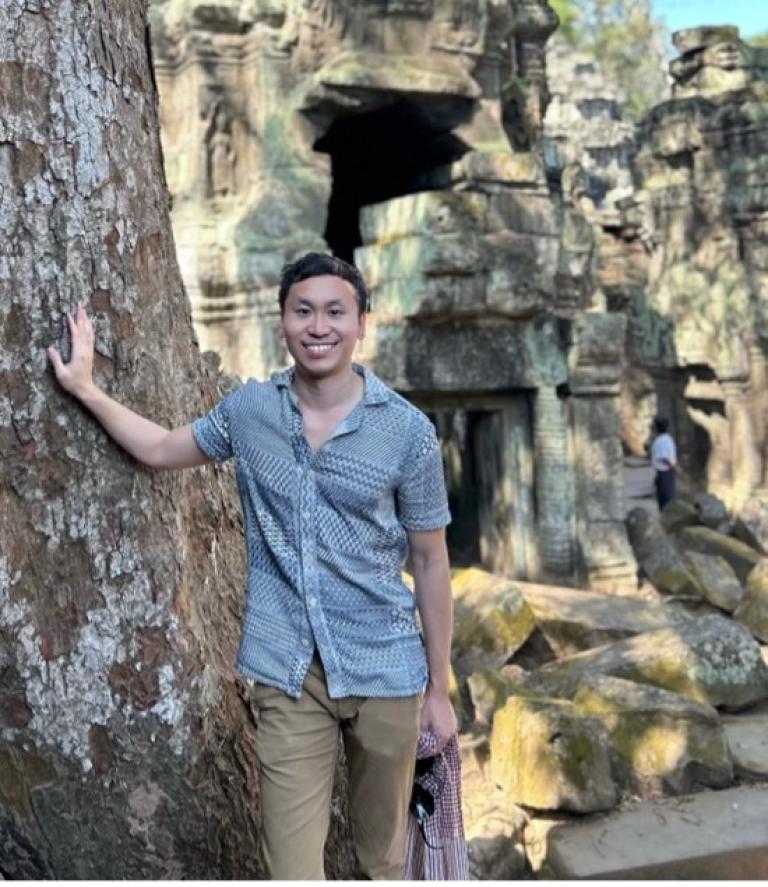
ICD Assistant Professor Ka I Ip at Angkor Wat

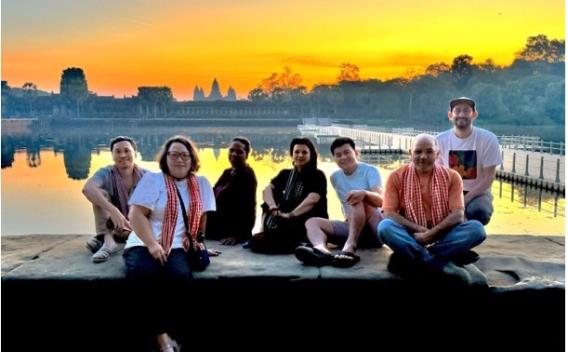
Sunrise view of Angkor Wat

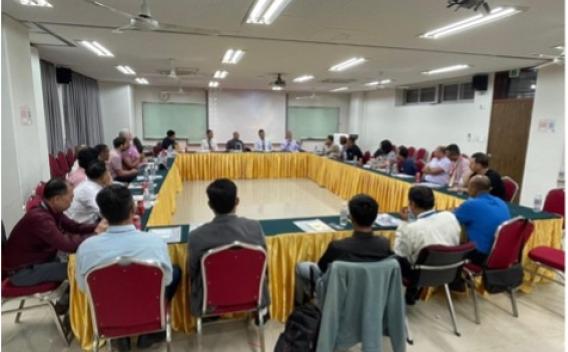
Teaching panel session with returnees

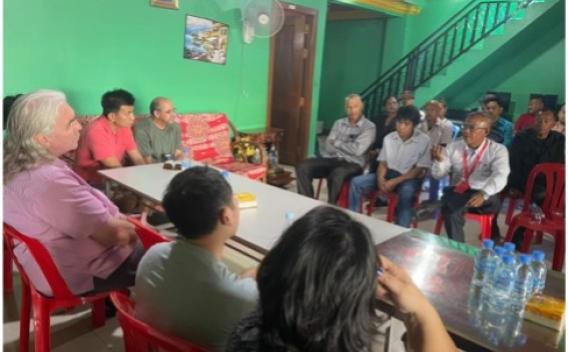
Conversations with deportees

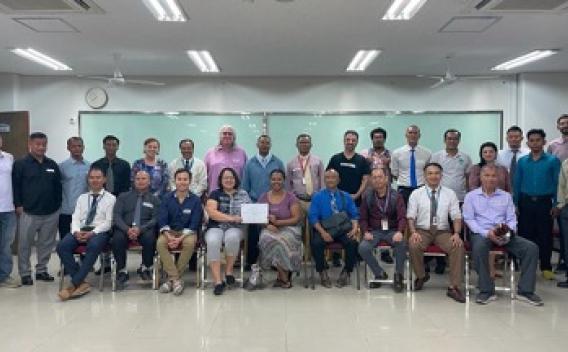
Teaching panel session with returnees
